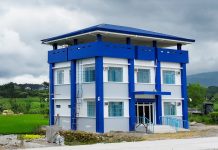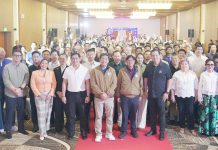TACLOBAN CITY – The Philippine Coconut Authority (PCA) will provide additional 500 chainsaws to storm-ravaged areas in the region as the agency expands coconut farm clearing to Samar provinces.
PCA Administrator Euclides Forbes said that 825 chainsaws have already been used. About half of the chainsaws are being operated by workers hired by PCA and the remaining half were turned over to various groups, to facilitate recovery efforts.
“We will buy more chainsaws by next month to replicate in Samar towns what we have done in the Leyte area. Our mandate is to start full rehabilitation in June, but we have started as early as February,” Forbes said.
The project has already hired 400 workers. Most of them are coconut farmers whose income significantly dropped after supertyphoon Yolanda totally damaged coconut trees.
The use of new chainsaws will be directly supervised by PCA with each worker earning P70 from sheared or uprooted coconut tree removed.
Massive clearing activities have been ongoing in Tacloban City and the towns of Palo, Tanauan, and Tolosa in Leyte.
As of last week 208,000 trees have already been removed from farms and converted into a lumber for rebuilding of destroyed houses.
The PCA reported that 33.82 million coconut trees in Eastern Visayas were affected by the storm last year. Of the total, 15.04 million were categorized as totally damaged, 9.06 million severely damaged, 4.98 million, slightly damaged, and 4.84 million moderately damaged.
Early phases of clearing activities are only confined in accessible coconut lands with grounds most suitable alternative to farming activities.
Department of Agriculture Regional Executive Director Bernadette San Juan said 88 hectares of farms in Leyte will be the pilot area for intercropping and livestock raising.
“Since these 88 hectares of coconut farms already cleared from debris, it is now prepared for intercropping and livestock production. Farmers need an income while waiting to fully restore their income to pre-Yolanda months, which will take about seven years after replanting,” San Juan said. (SARWELL Q.MENIANO)



